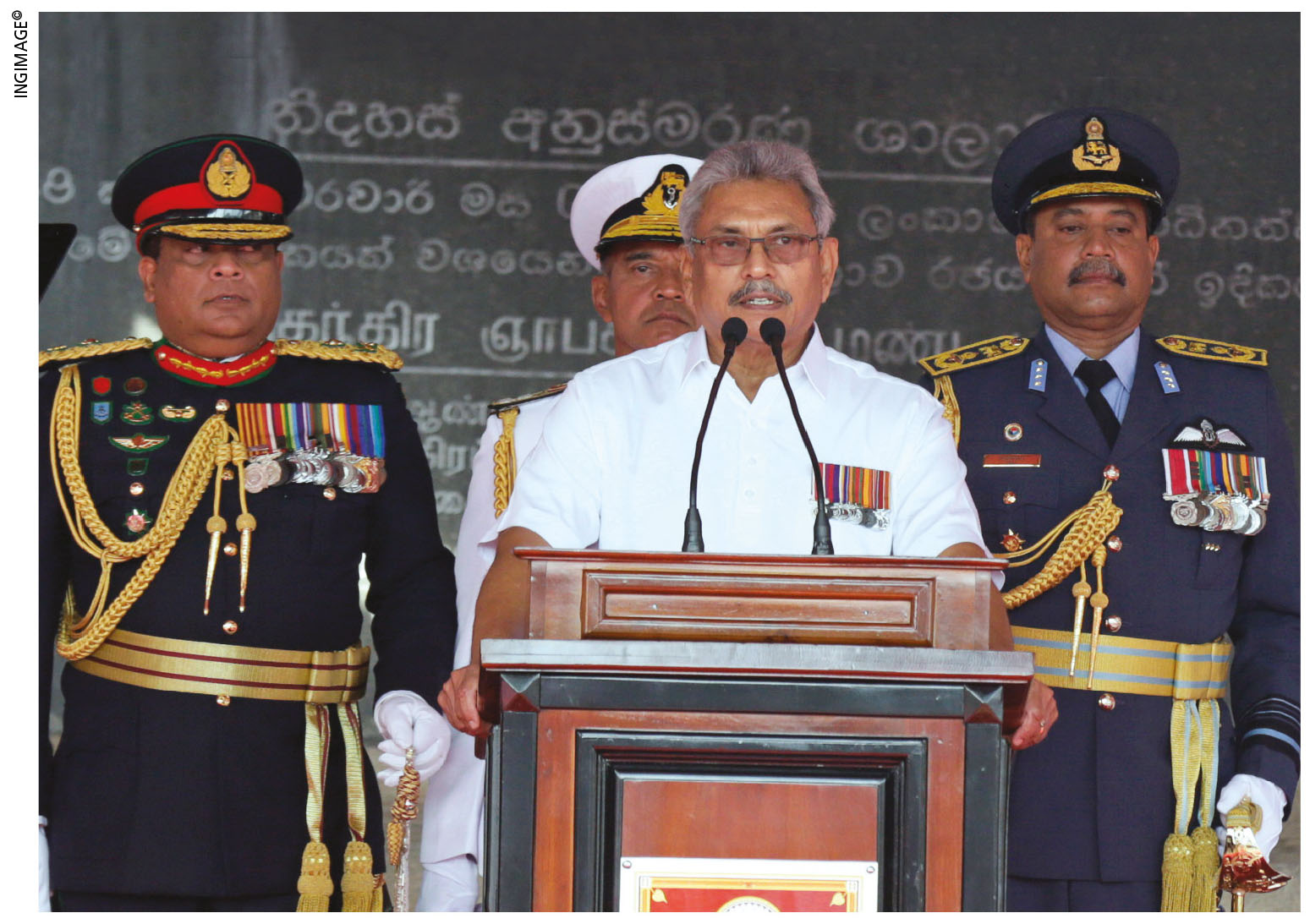THE MODERN STATESMAN
MATCHING WORDS WITH DEEDS
High-minded words that are matched by deeds yield trust – Dr. Jehan Perera
President Gotabaya Rajapaksa has an opportunity to be a leader in the mode of Lee Kuan Yew who was no-nonsense and firm when it came to dealing with political opponents, but mindful in treating all communities in Singapore alike and ensuring they intermingled with each other.
In his Independence Day speech, the president said: “I have the vision that I must serve as the leader of the country looking after all citizens rather than serve as a political leader concerned only about a particular community. As the president today, I represent the entire Sri Lankan nation irrespective of ethnicity, religion, party affiliation or other differences.”
However, the government continues to fall short in efforts to realise Rajapaksa’s vision of being the president of all Sri Lankans.
Its failure to ensure that the national anthem was sung in both of the country’s official languages -Sinhala and Tamil – at the Independence Day celebrations was a setback to the dream of having a Sri Lankan leader with the depth and capacity to rise to the pantheon of great national unifiers such as Abraham Lincoln, Nelson Mandela and Jawaharlal Nehru.
This came as a disappointment to those who expected the administration to respond to the sentiments of ethnic and religious minorities in feeling a sense of belonging to the nation.
Rajapaksa has an opportunity to be a truly national leader. The war ended over 10 years ago and there is no uncooperative entity such as the LTTE with the power to wreck a unifying initiative.
During her tenure as president, Chandrika Kumaratunga displayed intellectual qualities and a political willingness to reach out to ethnic and religious minorities. But her aspirations were undermined by actions of the LTTE over which she had no influence.
This was an opportunity that the incumbent president’s brother Mahinda Rajapaksa had when he was voted into office for a second term, having defeated the LTTE in battle. But he failed to take it up – to the country’s detriment.
The elder Rajapaksa’s regime was elected to power in 2010 with a large majority and high expectations. But the opportunity to include ethnic and religious minorities was not optimised as the government alienated minorities, who felt that they’d become the main victims of impunity by state and paramilitary actors.
In addition, the international community exerted pressure on the government for its reluctance to present a viable road map to reconciliation. It imposed economic sanctions including a withdrawal of GSP+ tax concessions.
With the general election scheduled to be held this year, the government would need to pay heed to the possibility of a similar set of negative factors converging on it. As in the period from 2010 to 2015, the administration is moving in a direction of conflict with the global community led by the US.
There is a continuation of a regime of international sanctions against Sri Lanka on the grounds of its unwillingness to deal with unresolved issues of the last phase of the war including missing persons and accountability for human rights violations.
The government’s immediate response was to announce that it would pull out of Sri Lanka’s co-sponsorship of the UN Human Rights Council Resolution 30/1, which set up a road map to reconciliation with the support of the international community.
As for reaching ethnic and religious minorities, the state needs to minimise their sense of being targeted for hostile action.
A sudden revival of checkpoints in the north and east would mostly affect minority populations as they are predominant in those areas. Those who travel in public buses and private vehicles – including senior citizens – are being compelled to disembark at security barriers even at night and personally carry their baggage to checkpoints.
Another concern is state intelligence agency surveillance of meetings and discussions, especially in the north and east, but elsewhere as well. Training programmes for journalists also have unin-vited intelligence officers in attendance.
This is done politely for the most part without any element of direct threat. But it is worrying to people with a memory of events not so long ago when they were similarly questioned albeit in different circumstances. In the present context, it sends a message to those being questioned that they’re not trusted.
Any leader who wishes to be a statesman would want to build trust with the people as a first step – regardless of their profession, ethnicity or religion.





